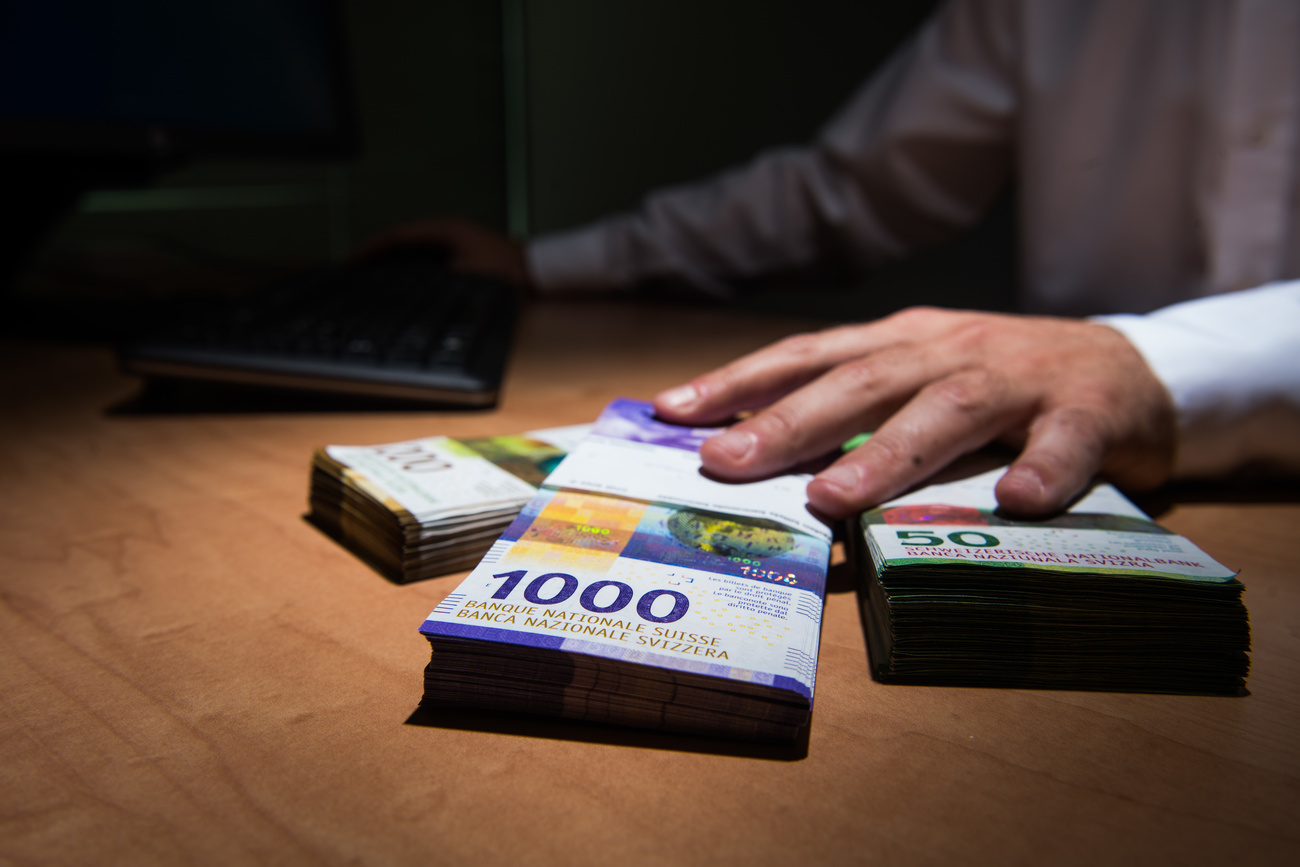Corruption: Swiss firms operating abroad may have ‘too big an appetite for risk’

Poor leadership, limited prosecutions and lack of protection of whistleblowers has allowed Swiss companies to keep bribing to win business abroad.
According to a joint studyExternal link conducted by the University of Applied Sciences of the Grisons and NGO Transparency International, one in three Swiss companies admitted to paying bribes abroad. Compared to the results of a similar study in 2012, the frequency of actual corrupt behaviour has even increased.

More
Corruption study: one in three Swiss companies pays bribes abroad
SWI swissinfo.ch spoke to Martin Hilti, the director of the Swiss branch of Transparency International, to find out why no real progress has been made.
SWI swissinfo.ch: Based on your latest corruption report, payment of bribes by Swiss companies is at the same level as a decade ago. Why do you think this is the case?
Martin Hilti (M.H): Companies have improved compliance measures in the last few years to prevent corruption in general. However, there are still important loopholes. A quarter of those surveyed do not have a code of conduct in place and half haven’t offered any training to their employees.
There are also some big shortcomings with a third having no “tone from the top”. Top management must insist on a zero-tolerance policy and instil it in their employees. They have to create a culture where they make it clear that they want to know about irregularities and those pointing it out should not face negative consequences.
SWI: Why is there not enough of a push to fight corruption from the top?
M.H: There may be too big an appetite for risk at Swiss companies that may have been nourished by a law enforcement that is not working as it should. In the two decades of the existence of corporate criminal liability (Article 102 of the Swiss Criminal Code introduced in 2003) only 11 final convictions have been obtained by Swiss law enforcement.

SWI: Some high-risk countries like Russia, Iran and Angola were mentioned in your report. Can companies not simply avoid doing business there?
M.H: High risk doesn’t mean companies cannot be active in these places. But they need to do a proper risk analysis and apply risk-based measures to prevent corruption. However, if you cannot guarantee a zero-tolerance policy then you should not do business there.
It is not only a moral question but also a legal one. Because you not only risk violating Swiss laws and the laws of the countries you are operating in, but also very far-reaching anti-corruption laws in other jurisdictions like the United States and United Kingdom. For example, the US Foreign Corrupt Practices Act is applicable if you bribe in US dollars.
SWI: Is Switzerland more exposed than others to corruption abroad given its export-oriented and globalised economy?
M.H: Corruption also takes place in Switzerland, albeit to a lesser extent than in other countries. When Swiss companies operate abroad, which is often the case, they expose themselves to the corruption risks that exist in the country in question.
Many Swiss players are also active as enablers of corruption and money laundering. In addition to the financial and the luxury goods sector, these include lawyers and notaries, for example, when they set up and manage shell companies through which corruption and money laundering are then processed. Switzerland therefore has a responsibility here. It should finally close the relevant regulatory loopholes to prevent such behaviour.
SWI: How can Swiss companies be incentivised to report corruption?
Companies are in principle interested in collaborating with the authorities. Once they offer bribes they are caught in a vicious circle and the only way out is to clear the air with a legal judgement. It is a big step but it offers companies an exit option as long as the incentives to do so are good enough.
The possibility of exemption from punishment would be a particularly strong incentive. It would therefore be helpful if Switzerland were to create a corresponding instrument, naturally under very strict conditions in order to meet the criteria of the rule of law. Other countries, like France and the UK have such an instrument successfully in place already (known as Deferred Prosecution Agreements where the company is charged with a criminal offence but legal proceedings are suspended provided the company agrees to conditions like paying fines or compensation).
Better legal protection for whistleblowers would also be important, as it is often only thanks to them that corruption can be uncovered. It is therefore regrettable that the House of Representatives once again decided not to do thisExternal link yesterday.
Edited by Reto Gysi von Wartburg/dos

In compliance with the JTI standards
More: SWI swissinfo.ch certified by the Journalism Trust Initiative









You can find an overview of ongoing debates with our journalists here . Please join us!
If you want to start a conversation about a topic raised in this article or want to report factual errors, email us at english@swissinfo.ch.